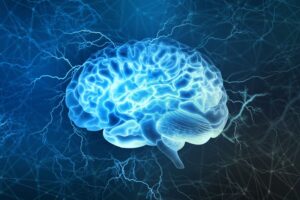
It is well-known that sleep is one of the primary pillars of good health. Yet, many people still tend to minimize its importance; they may not understand just how profoundly it can affect them. In fact, poor-quality sleep can have devastating consequences throughout the body, including the brain! In this blog post, you will learn some details about how sleep apnea might lead to brain damage and memory loss.
How Sleep Apnea Affects Your Memory
Just how does sleep apnea affect your memory? The answer lies in how the brain works during the night. Memory formation and consolidation occur while you sleep, and if your breathing is interrupted due to sleep apnea, your brain may not function as it should. Research has revealed several concerning facts about the connection between sleep apnea and memory loss:
- Individuals with sleep apnea tend to receive a diagnosis of mild cognitive impairment about 10 years earlier than healthy sleepers.
- Sleep apnea is connected to a higher risk of dementia and Alzheimer’s disease.
- Poor quality rest interrupts the process of memory consolidation, which is vital for retaining new information.
The Link Between Sleep Apnea and Brain Structure
Sleep apnea not only causes memory problems, but it also affects the structure and chemistry of your brain. Interruption of oxygen flow during the night may result in the following issues:
- Damage to mammillary bodies, which play a crucial role in memory.
- Changes to white matter, the brain’s communication network.
- Reduction in gray matter, which is necessary for information processing and interpretation.
- Alterations in brain chemicals, such as increased glutamate and decreased GABA, which can impact cognition and nervous system regulation.
What You Can Do to Protect Your Brain
Fortunately, the human brain is remarkably resilient. If you receive effective treatment for sleep apnea, you may reverse some of the damage and restore healthy brain function. In fact, one study showed that just 12 months of consistent treatment can nearly eliminate abnormalities in white matter!
What is the best way to address sleep apnea? That can vary from individual to individual. However, many people have found success via a custom oral appliance from a dentist. This is a small device that can keep your airway open and prevent breathing disruptions. It is generally easier to use and tolerate than a CPAP machine, which is the most common sleep apnea treatment.
High-quality sleep can protect your brain! If you have sleep apnea, now is the best time to pursue treatment.
Meet the Practice
At Four Town Dental, we take great pride in providing high-quality care in a welcoming environment. Oral appliance therapy for sleep apnea is among the many services we offer. To learn more about this treatment option or to request a consultation, contact our Enfield office at 860-856-6928.
